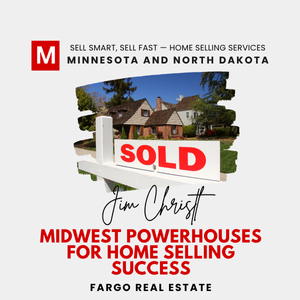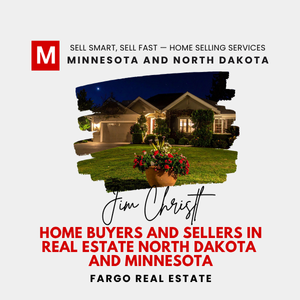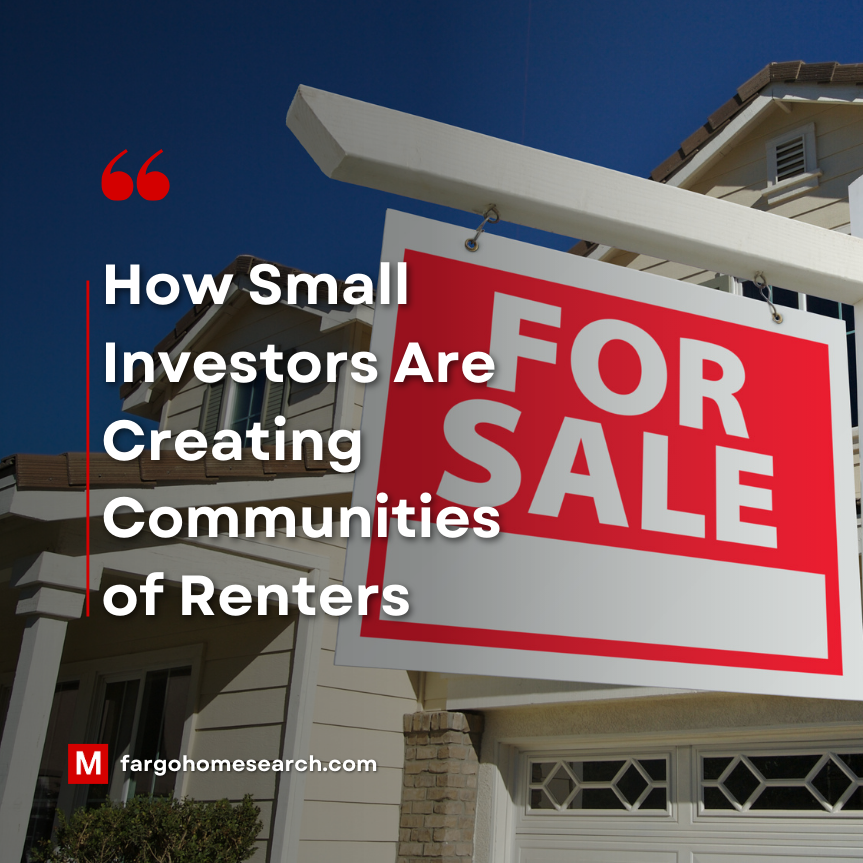Buying a Foreclosure? Whats the #1 Tip for Getting a Great Deal?

Shannon Barnum shares expert tips for homebuyers navigating the foreclosure surge.
Reading the Signs: Is a 2025-2026 Foreclosure Surge Coming?
The housing market, once defined by its blistering pace and overbidding wars, is now showing early signs of strain. Interest rates remain historically high, inflation has dented consumer spending, and some homeowners—particularly those who bought at peak prices—are falling behind on payments. Mortgage delinquency rates have ticked upward for the third consecutive quarter, and early-stage foreclosures are slowly building momentum in markets like Arizona, Minnesota, and Florida.
But what does this mean for you? It means there may be opportunity brewing—especially if you’re prepared to act strategically. A potential rise in foreclosed homes for sale in 2025 could create rare windows of affordability in a market that’s otherwise unaffordable for many buyers.
What This Means for You as a Buyer
For homebuyers priced out of the market in recent years, foreclosures could represent a new foothold. The reality of buying a foreclosed home in 2025 will likely come with less competition, more room for negotiation, and—if you’re diligent—built-in equity from day one.
Recent data underscores this emerging opportunity. In May 2025, there were 36,033 U.S. properties with foreclosure filings, marking a 13.9% increase compared to the same month last year. While overall volumes remain below historical norms, the steady rise in both foreclosure starts and completions signals mounting economic pressures on some homeowners. [Source]
Additionally, the national mortgage delinquency rate rose to 4.04% in Q1 2025, up from 3.98% in Q4 2024, indicating that more homeowners are struggling to keep up with payments. [Source]
For prospective buyers, this trend translates to a growing inventory of distressed properties entering the market. By staying informed and prepared, you can position yourself to take advantage of these opportunities, potentially securing a home at a more affordable price point.
Table of Contents
- Introduction
- Reading the Signs: Is a 2025 Foreclosure Surge Coming?
- What This Means for You as a Buyer
- Types of Foreclosures You Can Buy Into
- Where to Find the Best Deals
- Smart Financing for Foreclosure Buyers
- What Real Estate Investors Are Doing Right Now
- Common Mistakes to Avoid When Buying Foreclosures
- Advice for First-Time Buyers Entering the Market
- The Ethics of Buying a Foreclosed Home
- FAQs About Buying Foreclosed Homes
- Conclusion: A Market Moment You Can Own
Long-Tail Keyword Target:
- How to buy a foreclosed home in 2025
- Best tips for buying foreclosure properties
- Can you get a mortgage on a foreclosed home?
Types of Foreclosures You Can Buy Into
Not all foreclosures are the same. Understanding the distinctions can help you identify which route fits your buying style and risk tolerance:
Pre-Foreclosures
These properties are still owned by the homeowner, but they’re behind on payments. You may be able to negotiate directly with the owner before the bank intervenes.
Short Sales
Here, the lender agrees to accept less than what is owed. They take longer to close, but may offer better condition homes than auctioned properties.
Bank-Owned (REO)
Real estate owned (REO) homes have already gone through foreclosure and are now owned by the bank. These are often sold as-is but come with a clear title.
Foreclosure Auctions
These are cash-only, fast-moving opportunities with the most risk and potential reward. You usually buy “sight unseen.”
Where to Find the Best Deals, Its Not on Zillow!
You can’t find foreclosure listings in your everyday MLS search. And despite what many assume, you shouldn’t waste your time on Zillow looking for foreclosures. Zillow isn’t designed to serve serious buyers—it’s built to capture your personal information and sell it as leads to real estate agents. The site often shows outdated or unavailable listings, creating more confusion than opportunity for buyers trying to navigate the foreclosure market.
Instead, try the platforms that are actually built for tracking distressed properties:
- HUDHomeStore.gov – Government-backed foreclosure listings
- Your local county auction or sheriff’s sale websites
- Bank-owned (REO) portals like Wells Fargo, Chase, or Bank of America
- Auction.com and RealtyTrac – Active foreclosure auction and REO inventory
For the most accurate and actionable listings, work with a REALTOR® who has direct access to pre-foreclosures, off-market REOs, and local bank-owned properties—these aren’t shown on public portals.
Smart Financing for Foreclosure Buyers
Don’t assume you need cash on hand. While some foreclosures (like auctions) are cash-only, many REO properties qualify for traditional financing, including FHA 203(k) loans designed for fixer-uppers.
Mortgage Options for Foreclosed Homes
- Conventional loans (with appraisal contingency)
- FHA 203(k) rehab loans
- VA foreclosure financing (for veterans)
What Real Estate Investors Are Doing Right Now
Institutional investors and mom-and-pop landlords alike are watching the foreclosure pipeline. Many are preparing to acquire foreclosed single-family homes and turn them into rentals. But there’s still space for individual buyers to compete—especially those who can close quickly or tolerate minor repairs.
Here’s the real talk: the big players—hedge funds, private equity firms, and REITs—are sitting on capital and waiting to pounce as more foreclosures hit the market. They’re not just buying in bulk for rentals either. Some are flipping to higher-income buyers as interest rates level off. And they’re laser-focused on entry-level homes under $300K—the same inventory you’re probably eyeing.
That doesn’t mean you’re out of luck. In fact, individual buyers still have a huge edge: flexibility. Investors often have rigid formulas and require instant returns. You, on the other hand, can tolerate a little sweat equity, live in the property, or be patient for appreciation. That’s powerful.
If you’re buying to live—not just to flip—you may be able to make stronger emotional offers, win bank approval faster, and even scoop up overlooked deals that corporate buyers pass on. Foreclosures favor the prepared, not just the wealthy. If you’re organized and informed, you’re already ahead of half the market.
Common Mistakes to Avoid When Buying Foreclosures
- Skipping the inspection (even if it’s as-is)
- Underestimating repair costs
- Not researching the title thoroughly
- Failing to set a realistic timeline—these deals often take longer
Real talk: buying a foreclosure is not like buying a freshly painted model home. Some properties have been vacant for months, even years. That means mold, burst pipes, pests, and surprises hiding behind drywall. Don’t let the low sticker price fool you—always build in a repair buffer and get professionals to assess the condition if you can.
And that “as-is” status? It doesn’t mean you should skip your due diligence. Just because the bank won’t fix it doesn’t mean you shouldn’t know exactly what you’re walking into. The buyers who get burned are the ones who assume too much. The winners are the ones who ask more questions than they think they need to.
Advice for First-Time Buyers Entering the Market
If this will be your first home, tread carefully but confidently. Don’t let the “as-is” label scare you off—many properties need just light cosmetic updates. But be ready to walk away from homes with structural or foundational issues.
The Ethics of Buying a Foreclosed Home
Foreclosure is a painful process for the families experiencing it. As a buyer, be mindful of the human cost. Avoid predatory bidding and instead focus on restoring neglected properties and contributing to the neighborhood’s recovery.
Responsible Buying Tips:
- Don’t approach distressed owners aggressively
- Focus on abandoned or REO homes
- Improve, don’t exploit—restore the home’s value for the next chapter
FAQs About Buying Foreclosed Homes
- Buying a Foreclosure? Here’s the #1 Tip for Getting the Best Deal
Start with a full inspection and research the title before making any offer. The biggest mistake foreclosure buyers make is assuming the low price is a no-brainer deal. But hidden repairs, unpaid liens, or legal encumbrances can quickly turn a “bargain” into a money pit. Before you commit, hire a qualified home inspector—even if the property is sold “as-is”—and ask your title company or agent to check for any back taxes or secondary mortgages. With that due diligence in hand, you’ll be ready to make a smart offer that accounts for both opportunity and risk.Pro Tip: Banks often price REO homes competitively to sell fast. Being pre-approved and ready to close quickly gives you negotiation leverage most buyers won’t have. - Do foreclosed homes sell for less?
Yes, foreclosures are often priced below market value, especially if they require repairs. However, the final sale price depends on condition, demand, and how long the property has been listed. Some foreclosures, especially REOs, can even spark bidding wars if they’re in good shape and attract multiple buyers. - Can you get a mortgage on a foreclosed home?
Yes. Most REO properties and some short sales are eligible for conventional, FHA, or VA financing. However, auction homes usually require cash or hard money financing. Always check property eligibility with your lender upfront. - Is it safe to buy a foreclosed property?
It can be, as long as you do your homework. Make sure the title is clear, inspect the property thoroughly, and work with a real estate professional familiar with distressed sales. Avoid blind auctions unless you’re an experienced investor. - Can first-time buyers purchase a foreclosure?
Absolutely. Many first-time buyers use FHA 203(k) loans to finance both the purchase and renovation of a foreclosure. Just be sure you understand the process and have a knowledgeable agent on your side. - What is an REO property?
REO stands for “Real Estate Owned” and refers to properties that didn’t sell at foreclosure auctions and are now owned by the bank. These homes are typically listed through real estate agents and can be easier to purchase than auction homes. - Are there closing cost differences with foreclosures?
Yes. Banks selling REO properties may be less flexible with closing costs, and short sales often require lender approval for any seller-paid expenses. Expect to pay more out of pocket unless negotiated into your offer. - What’s the biggest risk in buying a foreclosed home?
The condition of the property and lack of seller disclosure. Foreclosed homes are sold “as-is,” meaning the bank won’t make repairs. Some may have been vacant or vandalized. Always factor in repair costs and inspect carefully. - How do I find foreclosure listings?
You can start with HUDHomeStore.gov, county auction sites, or REO sections on major bank websites. A licensed real estate agent can also help identify foreclosures listed on the MLS. - How long does it take to close on a foreclosure?
For REO homes, the timeline is similar to a traditional purchase—30 to 45 days with financing. Short sales may take 60 to 120 days depending on lender response. Auction purchases can close much faster, especially for cash buyers.
Looking for a Foreclosure? What is #1 Tip for Getting a Great Deal?
IDX MLS IDX Listing Disclosure © 2025
The data relating to real estate for sale on this web site comes in part from the Broker Reciprocity SM Program of the Regional Multiple Listing Service of Minnesota, Inc. The information provided is deemed reliable but not guaranteed. Properties subject to prior sale, change or withdrawal. ©2024 Regional Multiple Listing Service of Minnesota, Inc All rights reserved.
Conclusion: A Market Moment You Can Own
If 2025 and 2026 brings a wave of foreclosures—as signs suggest—it won’t just be a challenge. It will be a defining opportunity. For buyers ready to act smartly, ethically, and with vision, this may be one of the most accessible paths to homeownership in the decade. Whether you’re a first-time buyer, a downsizer, or a small investor, now is the time to learn the terrain and prepare your move.
Live Where You Love—on your terms, in your time.
“As a first-time homebuyer, I was overwhelmed by the idea of buying a foreclosure—but Shannon and Jim made it simple. They helped me understand the risks, find a property with built-in equity, and negotiate a great deal. Now I own a beautiful home I never thought I could afford. If you’re thinking about taking advantage of the 2025 market, don’t do it without Team Jim and Shannon on your side.”
🚀 Schedule Your Free Foreclosure Buying Consultation
Written by Jim Christl
Jim Christl is the Broker/Owner of Modern Market REALTORS® with over 20 years of experience covering residential real estate trends in Minnesota and North Dakota. Known for simplifying complex housing issues and helping both buyers and sellers navigate changing markets, Jim specializes in home selling, new construction, and home buying. His insights have guided thousands of successful real estate decisions in the North Dakota and Minnesota.






